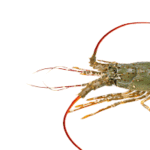The U.S. government, as well as academic leaders, are actively trying to protect their position as a global leader in research and technology. At the same time, they are committed to ensuring transparency and openness, the ingredients that have made U.S.-based research the envy of the world.
After several years of internal investigations, officials at the National Institutes of Health last year referred to federal law enforcement agencies1 suspected cases of undue foreign influence in U.S.-based research. According to the NIH, nearly every one of the hundreds of scientists under investigation is well-funded and established, rather than being fellows or students. Some who have faced criminal charges are from prominent and prestigious research institutions in the U.S.
The accusations have prompted U.S. senators to introduce sweeping changes2 to how the federal government governs academic research. Among the provisions under consideration is a tighter review of visa applications from foreign researchers, and increased stringency in reporting of gifts, including grants. This past July, the Senate Homeland Security and Governmental Affairs Committee advanced an amended version of the Safeguarding American Innovation Act (S. 39973).
NIH officials have notified nearly a hundred institutions4 of questions regarding the behavior of researchers, according to Science Magazine. Many of those researchers have subsequently been dismissed from their institutions. More serious cases, such as suspected economic espionage or theft of intellectual property5, have gone to the U.S. Department of Justice and Department of Human Services’ Office of Inspector General. The U.S. Federal Bureau of Investigation (FBI) is pursuing over 1,000 open cases6 on this topic with many involving universities, according to Christopher Ray, Director of the FBI.
The stakes are very high with the risk of compromised U.S. academic research at the center, not to mention the civil and criminal liability facing institutions and academic researchers. Academic leaders recognize these concerns. Many have issued internal memos to faculty and staff, and are actively reviewing their policies and procedures to protect research activities.
To address these concerns, NIH has issued clarifying guidance on several occasions in the last year, most recently in July 2019. Leaders at academic institutions are obliged to protect core academic values, while at the same time safeguarding data integrity. Researchers must strike a balance among research integrity, national security, international collaborations, and open scientific inquiry.
A new course, Undue Foreign Influence: Risks and Mitigations, offered by CITI Program provides academic researchers and leaders the necessary information and tools for addressing sensitive topics, such as conflicts of interest, cybersecurity, misuse of federal research funding, exploitation of expertise, and use of social engineering and propaganda. Learners who take the course will understand how to protect academic and research integrity, as well as mitigate risks against criminal and civil liability. The course provides a strong foundation for institutions that are revisiting, clarifying and strengthening policies, procedures, practices and protocols.
Researchers and academic leaders can learn to protect themselves, their institutions and laboratories, as well as U.S.-funded research activities by being up to date on reporting requirements and other nuances of international research collaborations.
References
1 NIH Investigates Foreign Influence at U.S. Grantee Institutions
2 Senators Introduce Bill Targeting Foreign Government Influence in Federally Funded Research
3 S.3997 – Safeguarding American Innovation Act
4 ACD Working Group on Foreign Influences on Research Integrity Update
5 Woman who worked at local research institute for 10 years pleads guilty to conspiring to steal trade secrets, sell them in China
6 China Initiative Conference “Opening Remarks”




